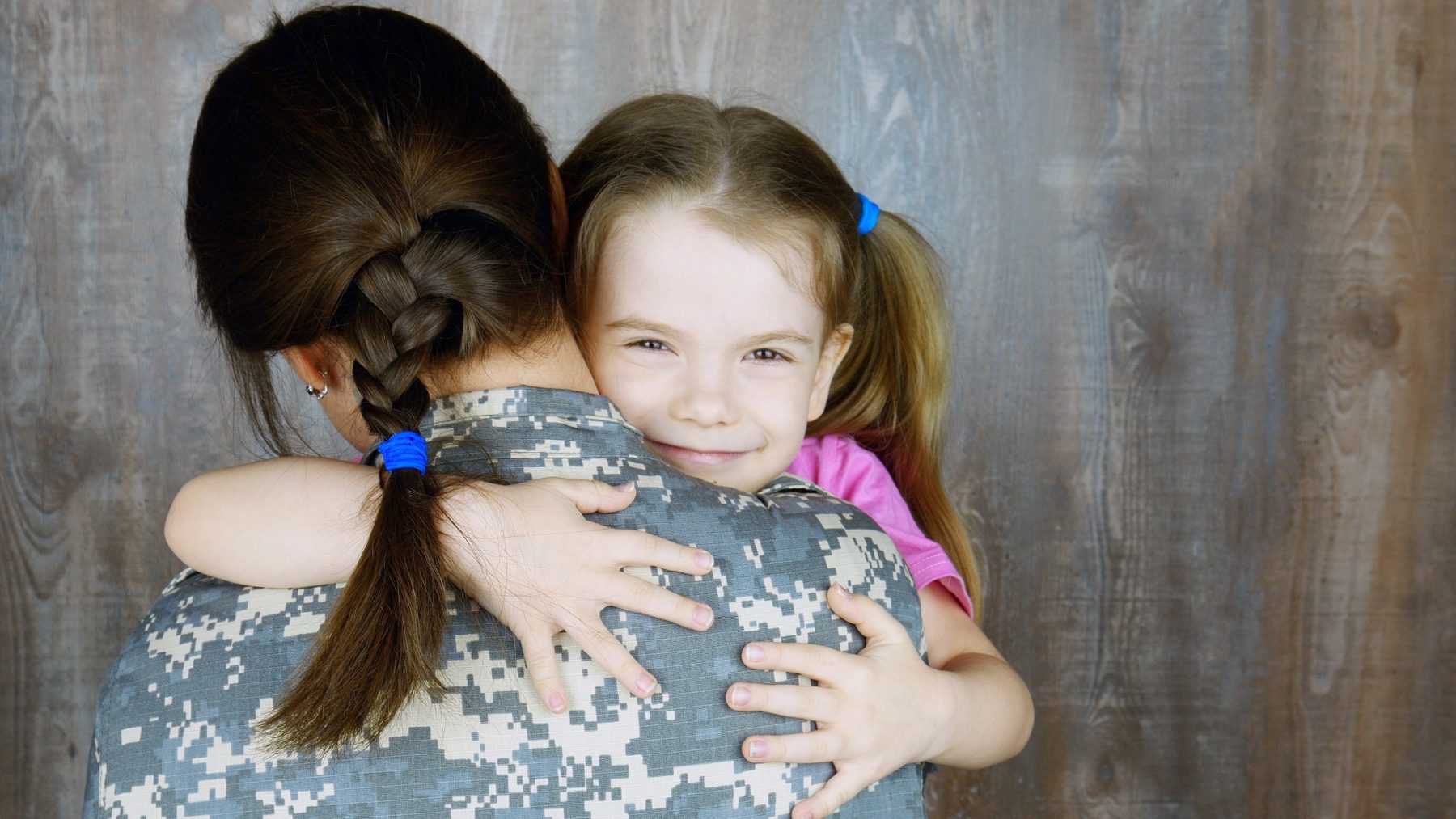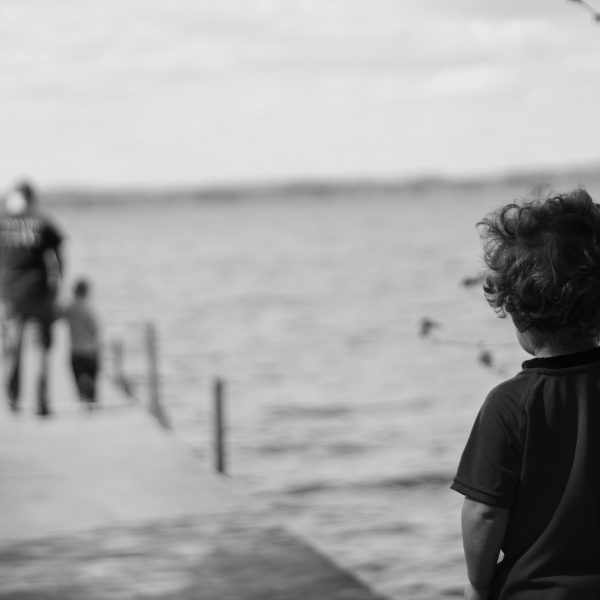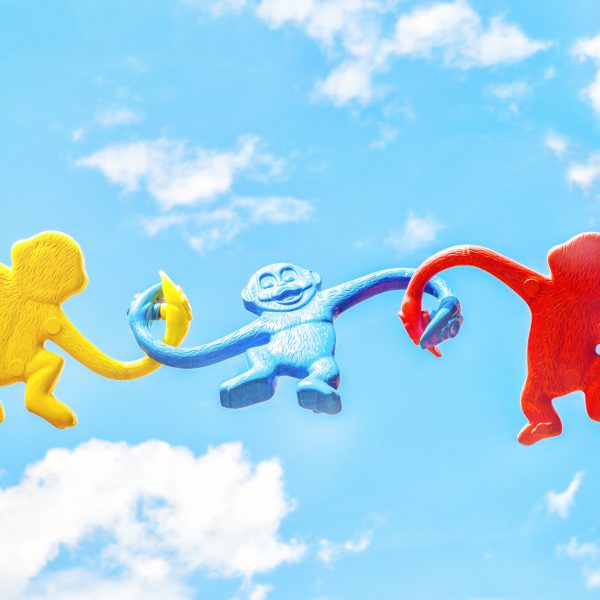The power of the pause: Adults listening to young children to support mental health and well-being

To discuss and listen or not to discuss and listen, that is the question. Talking with and listening to children about mental health is vital. The early years (birth -12 years) are essential in establishing the developmental foundations for a child’s future mental health and well-being; however, it is also a time of vulnerability, states the Australian Institute of Health and Welfare (AIHW).
AIHW recently reported that between 2013-2014, an estimated 314,000 children aged 4-11 (almost 14 per cent) experienced mental health issues, with boys more commonly affected than girls (AIHW, 2020).
Mental health is “a state of well-being in which an individual realises their own abilities, can cope with the normal stresses of life, can work productively and make a contribution to their community. Mental health also refers to diagnosable conditions which can mostly be treated,” the report states(AIHW, 2020,p85).
Over the past decade, it has become increasingly clear from the empirical evidence that young children can experience negative mental health. Within society, negative mental health is often associated with adolescents and adults. Stress, anxiety and depression can be associated with infants and young children, hence the importance of raising the awareness of mental health. This is so adults can pay particular attention to a child’s play behaviours, decision-making abilities and changes in their regulatory behaviours (Egger et al., 2006).
Irrespective of a person’s age, good mental health and well-being are central to daily functioning. Discussing mental health and well-being remains a complex topic for many to raise with someone else, especially when ‘someone else’ is a child. Often educators and parents are concerned they may say the wrong thing and upset a child or use words/concepts that may not be developmentally appropriate for a child to process. Furthermore, adults may feel that young children should not be burdened with conversations about their or others’ mental health and well-being. However, adults need to talk openly with young children about mental health and well-being from a young age, as physical health is just as important as mental health. Children need to grow up knowing that it is okay to express their thoughts and feelings with others. Suppose they are taught to hide their feelings and emotions. In that case, this can lead to children feeling isolated, unheard, with potentially catastrophic outcomes in their adolescent and adult years (National Scientific Council on the Developing Child, 2012).
The power of the pause
The power of the pause can be interpreted in a couple of ways. Firstly, as adults, we need to intentionally pause, observe, listen and discuss with young children aspects associated with mental health and well-being as it affects individuals, families and educators. Secondly, adults need to pause and take some time to reduce the feelings of stigma and judgement about mental illness. This can be achieved by equipping themselves with the knowledge of what constitutes mental health, strategies to support children in this space and the professional supports within the community available to support everyone.
Emotional development underpins a child’s development of positive mental health and well-being. As children grow, various role models, such as educators/parents/carers, can guide and equip children with various skills to increase their mental health and well-being awareness. Numerous studies reveal that children can show clear characteristics of poor mental health. However, very young children (under 12 years) can respond and process emotional experiences and traumatic events differently to adolescents and adults. This makes it more complex to diagnose, and if undetected, can lead to severe consequences for early learning and lifelong health (National Scientific Council on the Developing Child, 2012). Some emotional and physical signs to be mindful of are:
- Increased levels of heightened emotional states (e.g. escalation in behaviours)
- Appearing to be sad for prolonged periods of time
- Indecisiveness
- Changes in ability to self-regulate emotions
- Appearing anxious or stressed a lot
- Increased levels of separation anxiety
- Avoidance of social situations, e.g., birthday parties, family functions etc.- more prevalent in 5-12 years)
- Increased levels of restlessness or inability to focus or pay attention
- Changes in sleeping ( inclusive of sleeping walking)
- Changes in eating patterns (or rapid loss of weight or weight gain in older children 6-12 years)
- Physical symptoms, such as complaints of lower back pain, frequent headaches and stomach aches
- Difficulties with fitting in school ( 5-12 years)
- Nightmares/night terrors
- Increased level of risk-taking behaviours
- Regression in developmental milestones.
(Ocasio et al., 2015)
Often the first question people ask when supporting a child (or anyone) with mental health is “What caused this?”. Given the complexity, mental health can be influenced by social, economic, physical environmental (inclusive of COVID-19), biological (e.g. medical conditions or hormonal changes), trauma and stress, personality factors (e.g. low self-esteem, anxiety) or genetic factors.
It is important to note that COVID-19 appears to have increased children’s mental health and well-being needs. Kids Helpline have reported a rise of more than 20 per cent of calls to their service in the last six months.
For young children, research highlights the importance of children being surrounded by positive, loving, responsive and stable relationships to assist in building secure attachments between children and their parents/carers and educators. As adults, we have the power of the pause to reflect and change the narrative and cultural mindset from “What caused this?” to “How can I support you the best?” This then opens the opportunity for conversations around stopping and listening to a child’s perspectives on a situation. If the child is unsure, we can make suggestions as adults. Focussing on the community-wide benefits of positive mental health can aid in providing the necessary strategies to support children, utilise the support of specialist early and foster optimism (FrameWorks Institute, 2021).
The power of the pause allows educators and parents/carers to work together and support and guide children’s emotional development. This can be achieved by employing several consistent strategies between an early learning service or school (depending on the child’s age) and the child’s home environment. Strategies to support positive emotional development and well-being include:
- acknowledge, role model and name how you and a child may feel when faced with various situations. Increase children’s vocabulary and give them words to associate their feelings with actions, e.g., ‘stress’ can feel like butterflies in your tummy or your heart beating out of your chest;
- discuss how emotions and feelings can impact us physically and they can potentially make us act and behave;
- develop strong, trusting relationship through positive attachments, and spending time with an individual child to assist in building their level of resilience, confidence, self-esteem, self-concept, and ability to ask for assistance;
- role model and intentionally teach children about social rules and understanding social cues (inclusive of communication skills, interpersonal skills, self-regulatory behaviours);
- actively listening to children and responding to their conversations, taking the time to pause in the day and ask, “Are you okay?”, “How are you feeling today?” or “I’ve noted you are looking sad. Is everything okay? and giving them time to process your question before responding on their behalf and avoid pressuring them to talk;
- introduce new concepts of mental health and well-being via songs, literature (books, poems etc.);
- be present and available for children – children need a trusted and reliable educator or parent/carer present to ease anxiety or stress and enable them to learn self-soothing techniques;
- equip children with age-appropriate coping strategies and use of positive management strategies. For example, encourage children to express their feelings through various avenues (talking, visual arts, music, participating in physical activities, dramatic play experiences, storytelling, use of sensory or manipulative toys, meditation or breathing techniques, use of replacement behaviours).
Strategies for parents, carers and educators
Adults can also employ numerous strategies to equip them with increased information on how to support their child and themselves when supporting a child’s mental health and well-being. For educators, they must be afforded multiple professional learning opportunities and resources to build up the necessary knowledge and skills to support young children and families.
Furthermore, as professionals, they can also steer parents/carers towards relevant specialists to support an individual child’s mental health needs. For example, educators can suggest to families to seek additional professional support from their family doctor, psychologists, psychiatrists, or other relevant specialists if they are continually observing certain emotional behaviours/signs in young children outside the maturational age of a child.
Parents/carers can also see advice professionals such as educators/teachers who can offer resources materials, a listening ear, developmental advice, share the expected pattern of development in accordance with their age, share their involvement within the early learning or after-school program. Furthermore, additional information from reputable organisations that specialise in supporting children’s mental health and well-being (and adults) should be accessed to support this space. For example:
- Your local GP (doctor)
- Beyond Blue (Be You for children birth-18years) 1300 224636
- Lifeline 13 11 1
- Kids Helpline 1800 55 180
- Mind Australia 1300 286 46
- Black Dog Institute https://www.blackdoginstitute.org.au (Note Black dog is not a crisis centre, but had valuable information for educators, children and families).
Parents/carers and educators need to seek additional support if they observe prolonged periods of anxiety, stress or depressive behaviours in children or changes in their emotional development milestones.
This piece has been shared on The Sector with the permission of the author. To read more of Michele’s work, please visit the Big Fat Smile blog, here.
References
Australian Institute of Health and Welfare. (2020). Australia’s children.
Egger, H. L., & Angold, A. (2006). Common emotional and behavioral disorders in preschool children: presentation, nosology, and epidemiology. Journal of child psychology and psychiatry, 47(3‐4), 313-337.
FrameWorks Institute (2021). Reframing children’s mental health: A communication toolkit. Retrieved from https://www.frameworksinstitute.org/toolkit/reframing-childrens-mental-health/
National Scientific Council on the Developing Child. (2012). Establishing a level foundation for life: Mental health begins in early childhood. Harvard University, Center on the Developing Child.
Raising Children Network (2021). Mental Health problems in children 3-8 years: signs and supports. Retrieved from https://raisingchildren.net.au/school-age/health-daily-care/school-age-mental-health-concerns/mental-health-problems-in-children-3-8-years-signs-and-support
Popular

Policy
Economics
Jobs News
Provider
Workforce
Children’s Services Award changes finalised to address gender-based undervaluation
2025-12-12 06:58:10
by Fiona Alston

Provider
Workforce
Quality
Fair Work Commission confirms forced resignation grounds in case involving early learning provider
2025-12-08 07:30:23
by Fiona Alston

Workforce
Quality
Practice
Provider
Research
How one teacher is using Little J & Big Cuz to build empathy, understanding and confidence in First Nations learning
2025-12-08 07:15:19
by Fiona Alston
















